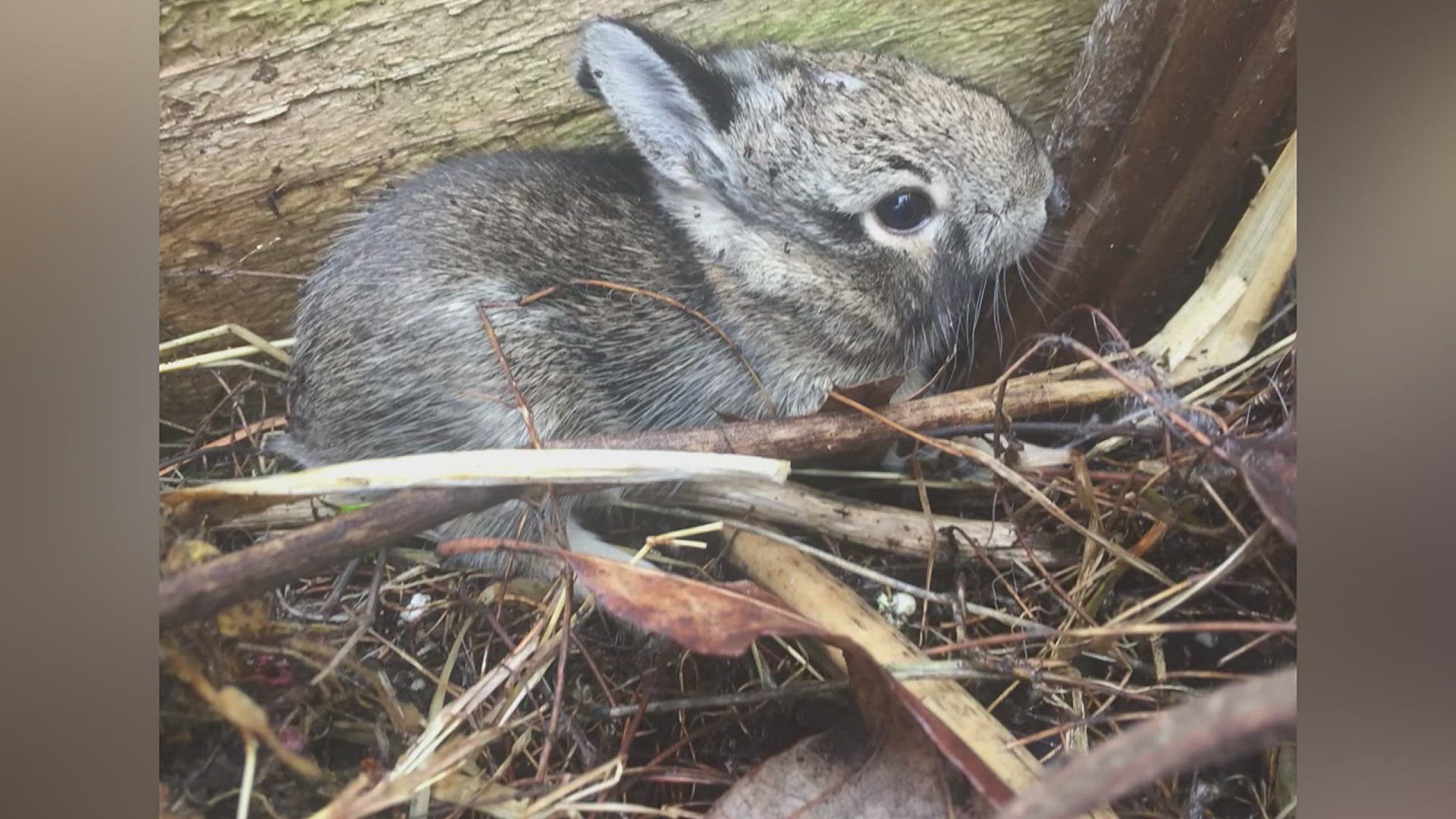IOWA, USA — Baby season has officially arrived across the Midwest! However, the Iowa Department of Natural Resources is asking for the public's help to leave wild animals, and their babies, alone this spring.
From April to at least mid-June, DNR field offices across the state are inundated with hundreds of phone calls about 'orphaned wildlife.' Officials say it's also not uncommon for baby animals of all kinds to mysteriously end up on DNR office doorsteps.
Often, well-meaning rescuers will start their phone calls with, "We were walking in the park when..." or "I looked out my window and saw..."
However, the DNR says nearly every instance in which something(s) are rescued from their mothers, it almost always ends in the baby's death.
While fuzzy yellow ducklings or tiny baby bunnies appear cute, clumsy and even vulnerable, the reality is many of those animals aren't orphaned at all.
"And while the people who attempt to 'rescue' these babies have the best intentions, they are in fact dooming the very creatures they intend to help," the DNR wrote in a press release.
Babies of most wildlife species leave their nests or dens long before they're able to care for themselves.
For songbirds, independence comes quickly, in as little as four or five days, while other species such as Canada geese or great horned owls see parent/young relationships staying strong for weeks or even months.
Young birds may seem dull-witted and vulnerable ... because they are, the DNR said. It's all part of nature's education process, which sees survivors smarten up and slow learners fade from the scene. Most birds have less than a 20% chance of surviving their first year.
Meanwhile, mammals are largely nocturnal, meaning the mother is usually sleeping or looking for food during the day, often leaving their babies in a daytime hideout. This regularly leaves young mammals to be alone or unattended during the day.
"Nevertheless, whenever a newborn fawn or a nest full of baby cottontails or raccoons is discovered by a human, it quite often is assumed that the animals are orphaned," the DNR wrote. "The youngster's fate is usually sealed when it is promptly 'rescued from the wild.'"
Wildlife babies often die soon after being captured. The stress of being handled, talked to and placed in unfamiliar surroundings gives the small animals trauma. Those that survive the trauma often succumb to slow starvation, pneumonia or other human-caused sickness.
"Whether they are adults or young, all species of wildlife have highly specific needs for survival. "Rescuing a baby from its mother" not only shows bad judgment, it also is illegal," wrote the DNR.
If wildlife babies must be taken to a rehabilitation center, you can find a list of Iowa-based spots here.
Tune into The Current from 4 to 5 p.m. on weekdays to catch live interviews impacting you, your family and your hometown as well as all of the biggest headlines of the day.
Watch more news, weather and sports on News 8's YouTube channel

